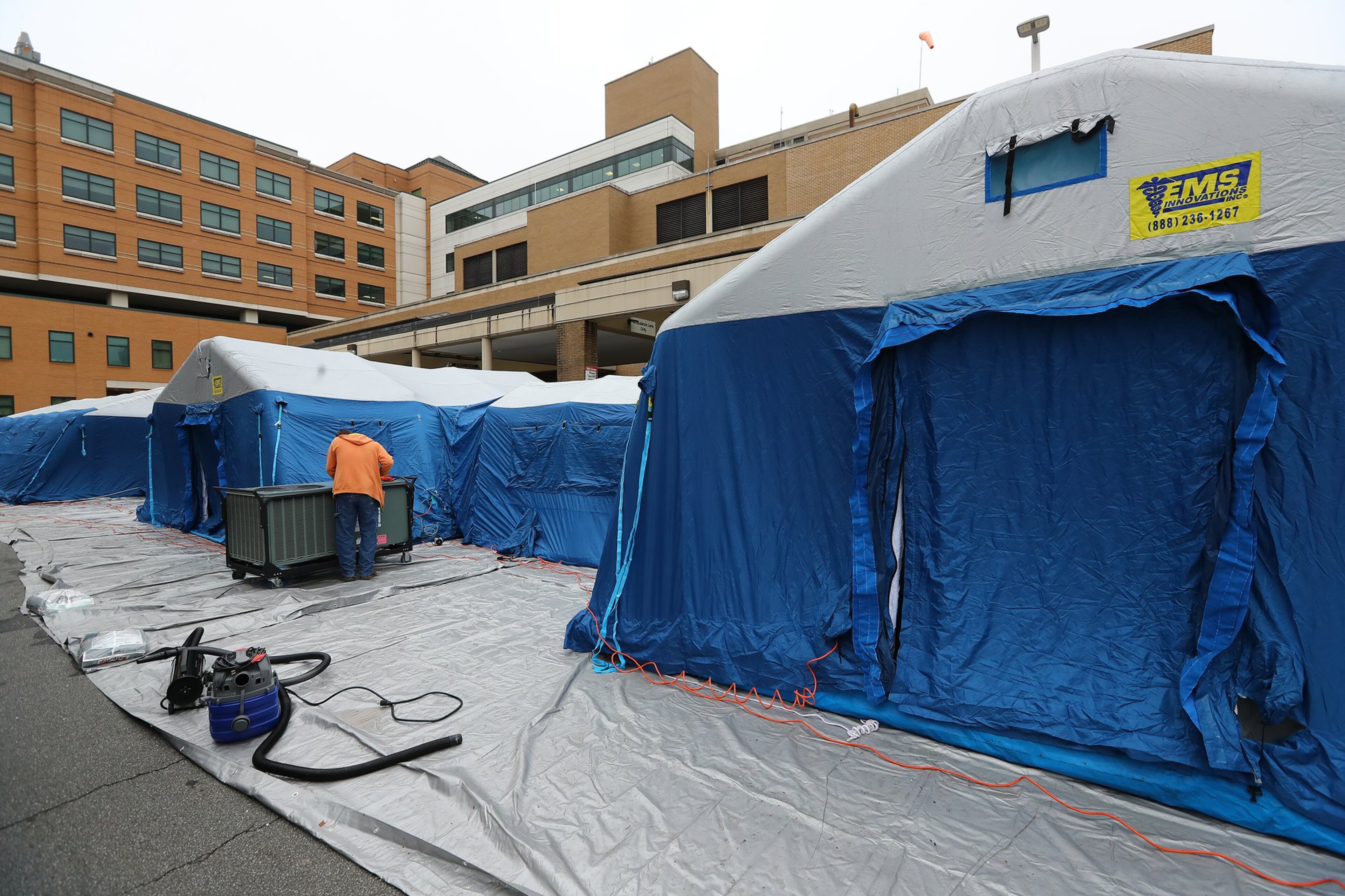Coronavirus testing: You still can’t just show up
Update:
As Georgia eases its shelter-in-place order and reopens some businesses, the state will rely heavily on a smartphone app to lead people to get coronavirus tests and a separate web portal to help track infected persons and isolate others who might have been exposed.
COVID-19 screening app: Augusta University Health System, the hospital system tied to the state's medical school, developed a telehealth app to screen patients for COVID-19 and allow them to talk to a medical provider to determine eligibility for a test. AU Health ExpressCare is available at augustaexpresscare.org or via smartphone apps available for Apple and Android smartphones. Residents without internet or a smartphone can call (706) 721-1852. The services is available 24-hours-a-day, seven days a week. Read more
Original story:
As Georgia expands its options for coronavirus testing, including new drive-through locations, patients still need approval to get a test.
The advice remains to contact a healthcare provider if you have coronavirus symptoms or believe you were exposed to someone with the virus. In no case should you just show up at the emergency room or a coronavirus testing location.

The Georgia Department of Public Health (DPH) said testing is prioritized for hospitalized patients with severe illness, health care workers and first responders, those working in long-term care settings and people living in congregate settings where the disease can spread quickly.
DPH has established a COVID-19 hotline at (844) 442-2681. The department urges people experiencing symptoms to contact their medical provider.
» Why the CDC recommends you wash your hands a certain way
What should you do?
If you are mildly ill, stay home, check your temperature at least twice a day, and limit your contact with others in your household. Wear a face mask when you are around them.
If symptoms worsen, call your doctor or an urgent care clinic for advice on where to go for testing or treatment. Testing is still largely limited to those with a doctor’s order and more severe symptoms.
Don’t call 9-1-1 for testing. Call it only for a medical emergency, such as difficulty breathing or an extremely high temperature.
» Hospitals tell mild cases not to seek coronavirus tests
In a statement on Monday, three of Georgia's largest hospital systems said a rush of requests for testing would be counter-productive.
“Inundating hospitals and doctors’ offices for testing by patients who can be managed at home, we believe, will worsen the impact of COVID-19,” said the statement from Emory Healthcare, Piedmont Healthcare and Wellstar Health System.
“The majority of patients can safely recover at home with self-isolation and symptomatic treatment,” the joint statement said.
» What's the difference between screening, testing and quarantine
